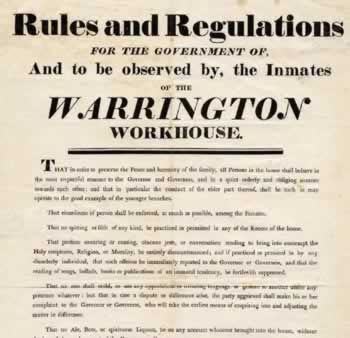LEARN A NEW WORD: 'Never Events'
You've probably heard stories over the years of some crazy, unbelievable, and even egregious mistakes made by medical professionals from time to time - things like operating on the 'wrong' body part, leaving a piece of surgical equipment inside the patient, or administering an incorrect medication or dosage that results in really, really bad outcomes. These kinds of mistakes happen, hopefully not too much, but they do, and health care providers have, over time, implemented structural and process changes to try and keep them from re-occurring.
So while you have probably heard about these kinds of mistakes, what you may not know is that in the medical field these kind of mistakes have a definitional term. They are called 'Never events' - "Adverse events that that are serious, largely preventable, and of concern to both the public and health care providers for the purpose of public accountability".
Naming and categorizing these events into the 'never events' bucket has helped health care providers better understand the problems, as well as devise interventions to (hopefully), prevent them from happening in the future. Said differently, once a 'never event' is detected, a different, more rigorous, and more repeatable set of protocols kick in.
I confess to have never, (no pun intended), heard of the term 'never events' until I read this piece from Slate that is advocating for local law enforcement agencies to adopt the 'never event' approach to solving some of their most challenging problems. And while I don't know anything about law enforcement, or health care, ( or much of anything else really), I kind of like the notion of adapting the approach that the medical field is taking towards these preventable events to other fields.
Would having a list of 'never events' in your business processes, or perhaps stated as the list of behaviors that are so egregious that they simply will not be tolerated, be of benefit beyond literal 'life and death' professions like health care and law enforcement?
I think it would be an interesting exercise to determine what some of the 'never events' might be in any context, if only to think about ways to create structure/environment and design processes to ensure these never events either don't happen at all, or at least can be reduced significantly. Even in an individual, personal context, this might have value.
I will start.
One of my 'never events' could be to have an unreturned or unacknowledged business email with 24hrs of receipt, (I know I am already in trouble).
How might I change my structure and process to ensure this 'never event' does not occur?
I could put on a permanent email auto-responder stating my commitment to answer within 24hrs, setting a clear expectation for myself and the email sender. I also could block times on my calendar each day to dedicate to processing email. And finally, if it gets really bad, I could hire an assistant to triage my email, respond on my behalf as needed, and only forward to me the most important emails, the ones that truly require rapid response.
I am going to think about those things this week. I encourage you to think about your own 'never events' too - in your business, your HR department, and even personally.
Some things should never, ever happen. Until we recognize which ones, it is hard to stop them from happening again and again.

 Steve
Steve
